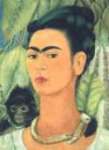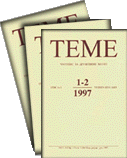
We kindly inform you that, as long as the subject affiliation of our 300.000+ articles is in progress, you might get unsufficient or no results on your third level or second level search. In this case, please broaden your search criteria.






This is a lecture at a conference on Central Europe in the European Union and the European Union in Central Europe, organized on 20 and 21 September 2007 at the Faculty of Social Sciences within the research project FSV UK.
More...
KAS/ Auslandsinformationen, 1/06, s.23-49, přeložil Ivan Štern
More...
KAS/ Auslandsinformationen, 1/06, s.4-23, přeložil Ivan Štern
More...
Die politische Meinung, č.447, únor 2007, s.17-19, přeložil Ivan Štern
More...
Die politische Meinung, 447, únor 2007, s.45-55, přeložil Milan Churaň
More...
This paper attempts to demonstrate the construction of political and media narratives in their diachronical circulation of ideas about the role and place of the Supreme Law in the life of a newly independent and equally newly democratic Ukraine. In particular, this study aims to reconstruct Ukraine’s legal portrait through a detailed consideration of its Constitution since its inception in 1996. Positioning this inquiry in the context of legal historiography, the paper adopts a modern view of this discipline that has been claimed to be “restructured as a science of the history of social communication about law” (Max Planck Institut). Accordingly, this paper suggests that the post-independence history of the Ukrainian Constitution can be treated as a history of discussions about the Constitution. Assuming that there is a positive association between mass media coverage of an issue and that issue’s place in the public agenda, the study explores the 14-year coverage (1996–2010) of Ukraine’s Constitutional process by a reputable Ukrainian weekly, the Dzerkalo Tyžnja. Employing the analytical approach of Critical Metaphor Analysis (conceived at a theoretical juncture between the cognitive linguistic account of metaphors and Critical Discourse Analysis), the article analyzes the media source’s metaphorical imagery of Ukraine’s dramatic Constitutional ‘saga’. Metaphorical representations of Ukraine’s Constitutional developments by the objective, non-partisan reputable media source were argued to contribute to the national policy debate and influence civil awareness within Ukrainian society by adding to the understanding of the complex and abstract political concept and evoking powerful emotional responses.
More...

In this paper I will try to investigate some of the ways in which husbandry, a recurrent topic in Gabriel Plattes’ works, was considered to be the recipe for bringing salvation in religious and economic manner. I will argue that proper methods of husbandry advocated by Gabriel Plattes, accompanied by a technological vision of amelioration, have been able to provide the foundation for healing the land and the human soul. Technological innovation, good measures of husbandry of the land and of the soul are able to ameliorate the economic estate of the nation and also to restore the human condition held prior to Fall. Experimental husbandry of the land and of the soul includes: agricultural innovation which could restore the plenty of the Garden of Eden, medicine which could solve the problems of disease, education reformation which could cultivate the young, and general economic reform which could bring undreamed of prosperity. Inspired from the Baconian tradition, Plattes reformulates the view on husbandry, promoting a new type of ‘integrated science’ able to cultivate the land and the human soul as well. Plattes contribution lies in providing a number of ‘technologies of amelioration’ for the material of Creation (soil, plants, human beings), technologies of salvation in an economic and religious manner.
More...
The edition of this summer’s number of Perspectives on Science is dedicated to a close-up of a particular intellectual context which favored the emergence of Francis Bacon’s works on natural philosophy in general and his epistemological account in particular. In the era of great upheavals and general reform Bacon assumed an important part: that of Reformer and Curer of the human mind. He aimed at freeing the faculties of the mind-imagination, memory, judgment, reason, from the false and perilous bridles of vain speculations, rash generalizations and idolatrous tendencies. The wide-spread acknowledgment of Bacon’s theory of error is taken up and elaborated in the edition dedicated to Francis Bacon and his “medicine of the mind” in an attempt to answer some challenging questions about the tradition which informs Bacon’s entire oeuvre.
More...
The Two Bookes of Francis Bacon of the Proficience and Advancement of Learning,published for the first time in 1605, is one of the first works belonging to what is known as modern philosophy. It is the first important work of philosophy of Francis Bacon, written in the form of a letter to King James of England and Scotland and expanded in a Latin edition in 1623, De augmentis scientiarum. About this book one can affirm what Bacon said about the technical inventions of his time: it has “changed the whole face and state of things throughout the world”1. Thus, this first Romanian edition of the Advancement of Learning, artfully and accurately translated by Dana Jalobeanu and Grigore Vida, is truly praiseworthy, by facilitating and revealing to the Romanian reader some of the major transformations of modern thought entailed in Bacon’s philosophy.
More...
This paper examines the way in which Locke’s deep and longstanding interest in the non-European world contributed to his views on species and their classification. The evidence for Locke’s curiosity about the non-European world, especially his fascination with seventeenth-century travel literature, is presented and evaluated. I claim that this personal interest of Locke’s almost certainly influenced the metaphysical and epistemological positions he develops in the Essay. I look to Locke’s theory of species taxonomy for proof of this. I argue that Locke uses evidence gathered from the non-European world to (1) show that in taxonomizing objects we rely on their sensible qualities rather than their real essences and to (2) undermine Scholastic Aristotelian views about a mind-independent species/genera structure to the world.
More...